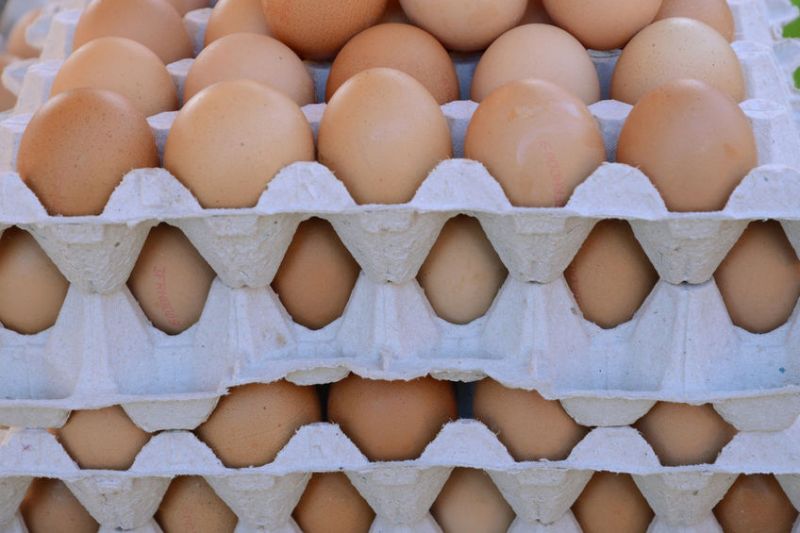Report shows importance of tariffs to egg industry after Brexit

A new report has highlighted the importance of continued tariffs to the egg industry after the United Kingdom leaves the European Union.
Ever since the British electorate voted to leave the EU in a referendum in 2016, egg industry leaders have been urging the government not to open up the UK market to tariff-free imports in the wake of Brexit.
At the NFU conference in February this year, Defra Secretary Michael Gove insisted that UK agriculture would not be exposed to the threat of a zero tariff regime.
“The Cabinet have been discussing what the future tariff regime may be in the event of a no-deal scenario,” he said during questioning at the conference.
“I can't pre-empt the announcement that will be made later but one thing I can reassure you is that it will not be the case that we will have zero rate tariffs on food products. There will be protections for sensitive sections of agriculture and food production.”
However, the following month, when the government released a list of foods to be protected by tariffs in the event of a no-deal Brexit, eggs and egg products were not included.
The decision was condemned by the British Egg Industry Council: “The government is trampling over all the good work the industry has done to raise animal welfare standards,” said BEIC chairman Andrew Joret.
Now, a new report from Wageningen University in the Netherlands, produced by egg industry expert Peter van Horne, has highlighted how vital tariffs are.
The report concluded that, without import levies, the European Union's egg sector would be under serious threat. In the EU, producers have to comply with regulations concerning environment, animal welfare and food safety.
The report said this raised total production costs by an estimated 16 per cent at farm level.
The report said: “In Argentina, India and Ukraine there is no legislation on animal welfare and laying hens are housed in conventional cages with a space allowance of 400 to 450 square centimetres per hen.”
It said: “With a 50 per cent decrease in import levies and a 10 per cent lower exchange rate for the non-EU currencies, offer prices could be six per cent (Argentina, India) to even 14 per cent (Ukraine) below the average EU level.
“The worst case scenario consists of no import levies and a 10 per cent lower exchange rate for the non-EU currency. In this scenario all non-EU countries would be very cheap suppliers of whole egg powder to the EU market.
“Offer prices could be as low as 18 per cent (Argentina, India) to even 27 per cent (Ukraine) below the average EU level,” said the report, which was produced for the EU trade association for egg packers, egg traders and egg processors (EUWEP).”
Peter van Horne said in his report that the production costs of shell eggs produced in enriched cages in the European Union in 2017 were, on average, 88 eurocents per kilogramme of eggs.
Between the main egg producing countries, the production costs of shell eggs in 2017 ranged from 96.3 eurocents per kilogramme of eggs in the Denmark to 82.3 eurocents per kilogramme of eggs in Spain.
The costs in the Netherlands, France and Italy were about the EU average, he said. Compared to the average level within the EU, the production cost of shell eggs in 2017 were 24 per cent lower in the USA, 22 per cent lower in Ukraine, 14 per cent lower in Argentina and 11 per cent lower in India, he said.
Production costs of whole egg powder in 2017 were 21 per cent lower in the United States, 20 per cent lower in Ukraine, 13 per cent lower in Argentina and 13 per cent lower in India.
Peter van Horne said that, because the cost of transportation of powder was low, the offer price of whole egg powder from third countries was relatively low, but current import levies protected EU production.
“Poultry farmers and other food business operators in the production chain in the EU have to comply with this European legislation,” he said in the report.
“This legislation is the translation of societal and political choices made in the EU and its standards and demands may exceed international standards and practices.
“Most EU legislation relates to environmental protection, animal welfare and food safety.”
Mark Williams, chief executive of the British Egg Industry Council (BEIC) has warned that pursuing a free trade policy with such countries would result in British farmers being significantly undercut.
However, despite the industry's warnings, eggs and egg products have not been included on the government's list of foods to be protected by tariffs in the event of a no-deal Brexit. The omission was attacked by farming leaders and animal welfare organisations alike.
Compassion in World Farming, the RSPCA and the British Egg Industry Council joined forces to write an open letter to Michael Gove, calling on the government to reconsider its stance.








